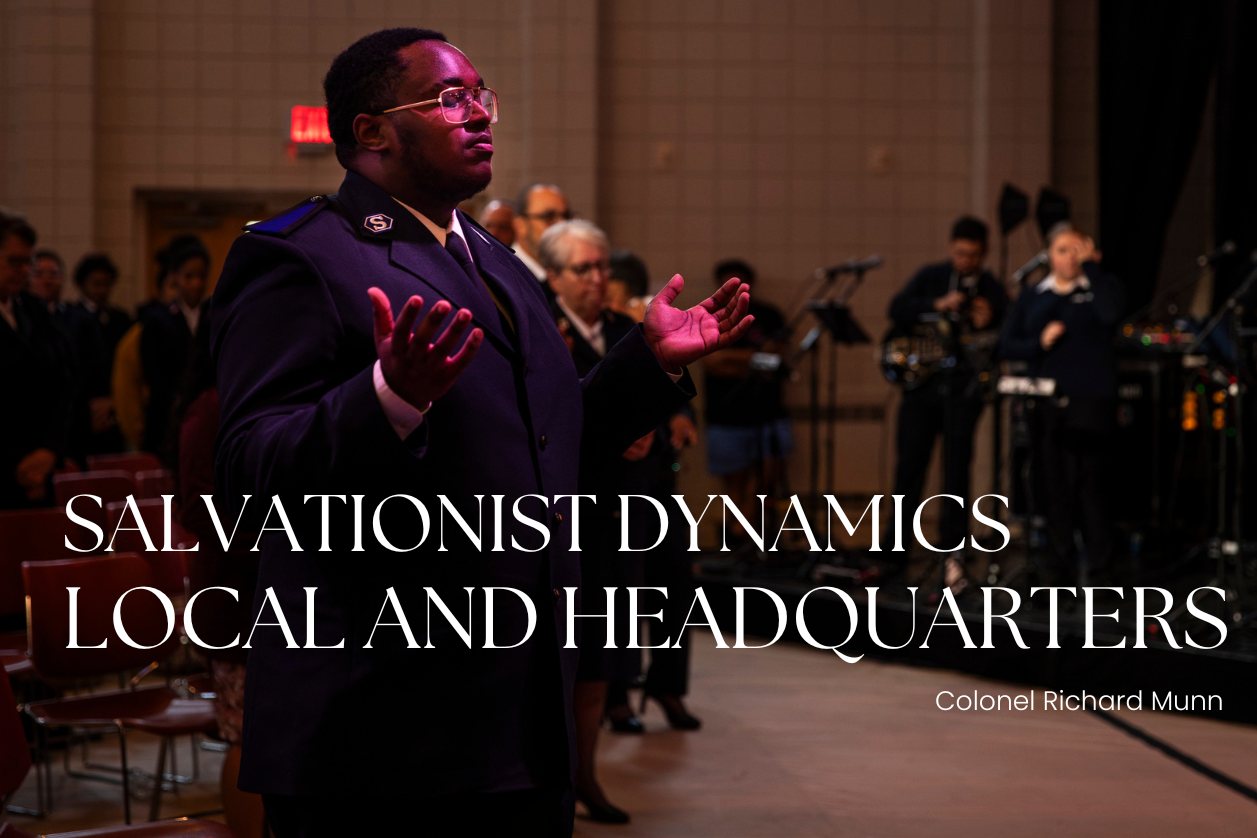
Salvationist Dynamics: Part 5
by Colonel Richard Munn
This 10-part series explores tried and trusted “pleasant tensions” matched together in The Salvation Army. Far from being feared or avoided, they give us dynamism: Salvationist dynamics.
Part 5: Local and Headquarters
The earliest years of The Salvation Army in the USA featured an evolving and bumpy understanding between command headquarters and newly planted local units. To what extent could local corps determine their own future and mission? Who owned the property? What influence did London have directing New York?
The dynamics are potent, and the reverberations are indelibly part of USA Salvation Army history.
And yet, in a genuine sense this tension is inherently part of the very fabric of any human organization, and maybe especially military organization. Soldiers laboring in trenches bewail the command center as incomprehensively out-of-touch, while Headquarters laments the ineffectiveness of the front line.
Denominationally, The Salvation Army is episcopalian, not congregational. The template is clearly present in the structure of Methodism, our antecedent. We are not like our Reformed colleagues, with autonomous independent congregations bound in a loose affiliation. We are part of an international command structure.
Both systems have strengths and vulnerabilities.
Ideally, of course, this is a symbiotic and mutually beneficial relationship. At its best, healthy two-way communication, trust, and empowerment create a climate of vibrant understanding and effectiveness. The command center sees the bigger picture, relates to the macro dynamics, adjusts, and charts forward accordingly. Simultaneously, the local unit intimately knows the surrounding terrain with all its subtle influences and neighborhood jargon, adjusts, and charts forward accordingly. Each informs the other.
When it works, it is a beautiful tension. When it is broken, it is excruciating. To the former we are surely all committed.
In summation, Romans 12 contains some powerful counsel: “Do not think of yourself more highly than you ought” (verse 3) and “Honor one another above yourselves” (verse 10).




